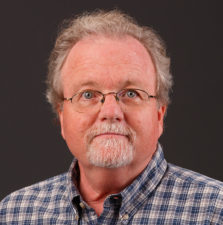We live in a truth-deficient age. The explosive growth of “information” sources on talk radio, cable TV, and the Internet has not, ironically, resulted in a better-informed public; instead, it has created multiple (mis)information bubbles, allowing individuals and groups to select their own “alternative facts” about anything, from history to politics to climate science to epidemiology.
Attempts to clean up our information ecology through fact-checking or banning bad actors from platforms are often too little and too late. Those who hope for a revival of public truthfulness might empathize with the psalmist after the destruction of Jerusalem: “We do not see our signs; there is no longer any prophet, and there is none among us who knows how long” (Psalm 74:9).
It might be tempting to retreat from the cacophony of our current public discourse into the relative calm of literature, drama, and film. There, at least, we know we are in the realm of fiction, even when the events portrayed are “based on real events” or striving for verisimilitude. But sometimes it is precisely in fiction that we can be most powerfully confronted with questions of truthfulness, and of our own chronic evasions of truth.
Case in point: two recent feature films from Eastern European countries that are themselves facing crises of truth. Over the past century, Hungary and Poland have successively endured nationalist authoritarianism, Nazi conquest, Soviet domination, and neo-liberal reform. Currently, both nations seem to be closing the circle, as Hungary’s Victor Orbán and Poland’s Jaroslaw Kaczyński revive ethno-nationalist passions, and revise history to glorify their past and efface any collective guilt or humiliation. In such a setting, artists must tread carefully if they want to raise the question of truthfulness.
Ferenc Török’s 2017 film is simply entitled 1945. An even more specific date and time is established early in the film: Friday 12 August 1945 at 11:00 a.m. That is when a train pulls into a station outside a Hungarian village and two Orthodox Jewish men disembark, rent a wagon, load two large crates onto it, and begin a slow procession toward the town.
Their silent approach throws the citizens into turmoil, for a reason that gradually becomes clear: in spring and summer of 1944, the Jews of the village had been rounded up by the Nazis along with half a million of their fellow Hungarian Jews, and loaded into boxcars for “resettlement.” Many of the townspeople had collaborated with the SS, and had eagerly expropriated the possessions of their former neighbors. Now, retribution seems to be stalking them.
The movie expertly reveals the different forms of moral panic that ensue as “the secret thoughts of many hearts are revealed.” István, the town clerk who has profited handsomely by betraying his former Jewish business partner to the Nazis, is making final arrangements for his son’s wedding. He fears that the Jews, coming with crates rumored to be “dry goods and perfumes,” intend to reclaim the pharmacy he expropriated for that son.
His bibulous friend Bandi is consumed with guilt at his part in the betrayal, and seeks counsel from the parish priest, whose refusal to hear his confession leads to tragedy. And the ripples of anger, fear, and remorse continue to expand as the wagon makes its way through the town.
Secrets also lie at the heart of the Polish film Corpus Christi (2019), directed by Jan Komasa. But this story is set in the present, and the secret is more personal. Six young people from a Polish village have recently died in a highway collision, along with a middle-aged man who was driving the other car. The village is largely united in blaming the man and shunning his widow, but the wound of their grief will not heal. And not everyone is convinced of the truth of that version of the story.
Into that situation comes Daniel, a parolee from a juvenile detention facility whose faith has been awakened by the prison chaplain, Father Tomasz. Daniel has a secret of his own. He has been sent to the village to work at the local sawmill, but he feels a priestly vocation. Through a mix of luck and lies, he presents himself as an ordained priest on a pilgrimage, and is pressed into service as a substitute for the local padre. With no priestly training beyond serving as Fr. Tomasz’s altar server, he flies by instinct, and finds his way to the heart of the community’s pain. The story does not end well for Daniel, but along the way he initiates a fragile process of truth and reconciliation that might continue in his absence.
Both films portray a community made sick by untruth; and both suggest that the path to truth is painful, and that it may be refused. How should we hear that message in our own circumstances?




